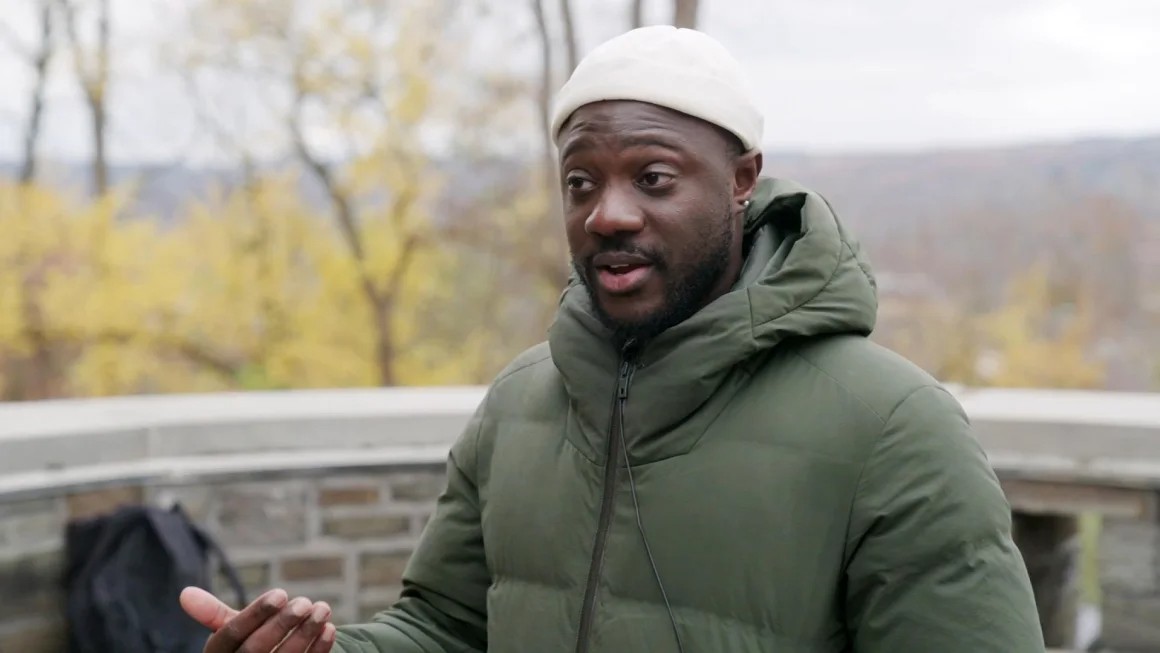Cornell student threatened with deportation over Palestine activism to leave US

A British-Gambian PhD student has decided to leave the United States after the Trump administration sent immigration officers to deport him for his pro-Palestine activism at Cornell University.
Last month, Momodou Taal launched legal proceedings against US President Donald Trump to stop his attempt at deporting international students and scholars who support Palestine and protest against the war on Gaza.
Taal's attorneys said Trump officials had asked the 31-year-old to turn himself in and were planning to revoke his student visa.
But on Monday night, Taal, a doctoral candidate in Africana studies, said he intended to leave "the United States free and with my head held high".
Taal said: "I decided to sue the Trump administration with the hope that it would offer reprieve for myself and other similarly situated persons.
New MEE newsletter: Jerusalem Dispatch
Sign up to get the latest insights and analysis on Israel-Palestine, alongside Turkey Unpacked and other MEE newsletters
"But Trump did not want me to have my day in court and sent Immigration and Customs Enforcement [ICE] agents to my home and revoked my visa."
Last week, a judge denied Taal's first motion to block the deportation of protesters.
"We held out but our first motion was denied. We were due to submit a second briefing with the hope that I could stay out of detention whilst our lawsuit progressed," said Taal.
“Given what we have seen across the United States, I have lost faith that a favourable ruling from the courts would guarantee my personal safety and ability to express my beliefs.”
Taal's attorney, Eric Lee, praised Taal for his decision to fight the Trump administration and said: "I feel like a stranger in my country. What is America if people like Momodou are not welcome here?"
Last year, Cornell suspended Taal and threatened to revoke the 31-year-old's study visa after student protesters shut down a careers fair attended by two arms companies, Boeing and L3Harris.
During his suspension, Taal was banned from campus and from accessing the university's buildings. The suspension also prevented Taal from attending Muslim prayers on campus.
However, after weeks of legal challenges and student protests held in Taal's name, Cornell agreed to reinstate him as a postgraduate student and reduce some restrictions imposed on him.
ICE's chilling effect
Observers say the targeting of university protesters is calculated to send a chilling effect across the country.
In the wake of the political backlash, universities like New York University and Harvard have scrambled to adopt the controversial IHRA definition of antisemitism as they come under federal scrutiny.
In early March, ICE agents seized Columbia University student Mahmoud Khalil off the streets of New York for his involvement in student encampment protests at Columbia.
Khalil is appealing the decision and denies claims made by Trump officials that he supports Hamas.
Similarly, ICE agents detained Badar Khan Suri, an Indian student at Georgetown University. Suri's lawyers deny claims he supports Hamas, with a judge barring his deportation.
Last Friday, a judge ruled that Rumeysa Ozturk, a Turkish student at Tufts University, could not be deported from the US without a court order.
Ozturk's arrest caused widespread outrage after footage showed masked, plainclothes ICE agents picking her off the street.
The Turkish national is a Fulbright scholar and doctoral candidate in the US with a visa. Her lawyers said she was targeted because of an opinion piece she wrote in a student paper along with three other students calling for her university to "acknowledge the Palestinian genocide" and to "divest from companies with direct or indirect ties to Israel".
Loss of funding
Since coming into office, Trump has ordered a pause on federal grants and loans, which a judge has since blocked, prompting uncertainty and alarm over the prospect of funding cuts at universities across the country.
On Monday, Trump officials announced a review of $9bn in federal contracts and grants awarded to Harvard University prompted by claims it is not doing enough to stop antisemitism on campus.
This potential funding loss comes after Columbia University lost $400m in federal funding. Since then, Columbia University has agreed to make a series of changes to begin negotiations with the Trump administration.
middleeasteye.net